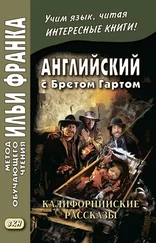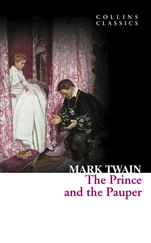Mark Twain - The Curious Republic of Gondour, and Other Whimsical Sketches
Здесь есть возможность читать онлайн «Mark Twain - The Curious Republic of Gondour, and Other Whimsical Sketches» весь текст электронной книги совершенно бесплатно (целиком полную версию без сокращений). В некоторых случаях можно слушать аудио, скачать через торрент в формате fb2 и присутствует краткое содержание. Год выпуска: 2004, Жанр: Классическая проза, Публицистика, на английском языке. Описание произведения, (предисловие) а так же отзывы посетителей доступны на портале библиотеки ЛибКат.
- Название:The Curious Republic of Gondour, and Other Whimsical Sketches
- Автор:
- Жанр:
- Год:2004
- ISBN:нет данных
- Рейтинг книги:3 / 5. Голосов: 1
-
Избранное:Добавить в избранное
- Отзывы:
-
Ваша оценка:
- 60
- 1
- 2
- 3
- 4
- 5
The Curious Republic of Gondour, and Other Whimsical Sketches: краткое содержание, описание и аннотация
Предлагаем к чтению аннотацию, описание, краткое содержание или предисловие (зависит от того, что написал сам автор книги «The Curious Republic of Gondour, and Other Whimsical Sketches»). Если вы не нашли необходимую информацию о книге — напишите в комментариях, мы постараемся отыскать её.
The Curious Republic of Gondour, and Other Whimsical Sketches — читать онлайн бесплатно полную книгу (весь текст) целиком
Ниже представлен текст книги, разбитый по страницам. Система сохранения места последней прочитанной страницы, позволяет с удобством читать онлайн бесплатно книгу «The Curious Republic of Gondour, and Other Whimsical Sketches», без необходимости каждый раз заново искать на чём Вы остановились. Поставьте закладку, и сможете в любой момент перейти на страницу, на которой закончили чтение.
Интервал:
Закладка:
From that time forward, going to Jerusalem, the Dead Sea, and the Jordan, Bethany, Bethlehem, and everywhere, I loafed contentedly in the rear and enjoyed my infamous pipe and revelled in imaginary villany. But at the end of two weeks we turned our faces toward the sea and journeyed over the Judean hills, and through rocky defiles, and among the scenes that Samson knew in his youth, and by and by we touched level ground just at night, and trotted off cheerily over the plain of Sharon. It was perfectly jolly for three hours, and we whites crowded along together, close after the chief Arab muleteer (all the pack-animals and the other Arabs were miles in the rear), and we laughed, and chatted, and argued hotly about Samson, and whether suicide was a sin or not, since Paul speaks of Samson distinctly as being saved and in heaven. But by and by the night air, and the duskiness, and the weariness of eight hours in the saddle, began to tell, and conversation flagged and finally died out utterly. The squeak-squeaking of the saddles grew very distinct; occasionally somebody sighed, or started to hum a tune and gave it up; now and then a horse sneezed. These things only emphasised the solemnity and the stillness. Everybody got so listless that for once I and my dreamer found ourselves in the lead. It was a glad, new sensation, and I longed to keep the place forevermore. Every little stir in the dingy cavalcade behind made me nervous. Davis and I were riding side by side, right after the Arab. About 11 o'clock it had become really chilly, and the dozing boys roused up and began to inquire how far it was to Ramlah yet, and to demand that the Arab hurry along faster. I gave it up then, and my heart sank within me, because of course they would come up to scold the Arab. I knew I had to take the rear again. In my sorrow I unconsciously took to my pipe, my only comfort. As I touched the match to it the whole company came lumbering up and crowding my horse's rump and flanks. A whiff of smoke drifted back over my shoulder, and—
"The suffering Moses!"
"Whew!"
"By George, who opened that graveyard?"
"Boys, that Arab's been swallowing something dead!"
Right away there was a gap behind us. Whiff after whiff sailed airily back, and each one widened the breach. Within fifteen seconds the barking, and gasping, and sneezing, and coughing of the boys, and their angry abuse of the Arab guide, had dwindled to a murmur, and Davis and I were alone with the leader. Davis did not know what the matter was, and don't to this day. Occasionally he caught a faint film of the smoke and fell to scolding at the Arab and wondering how long he had been decaying in that way. Our boys kept on dropping back further and further, till at last they were only in hearing, not in sight. And every time they started gingerly forward to reconnoitre—or shoot the Arab, as they proposed to do—I let them get within good fair range of my relic (she would carry seventy yards with wonderful precision), and then wafted a whiff among them that sent them gasping and strangling to the rear again. I kept my gun well charged and ready, and twice within the hour I decoyed the boys right up to my horse's tail, and then with one malarious blast emptied the saddles, almost. I never heard an Arab abused so in my life. He really owed his preservation to me, because for one entire hour I stood between him and certain death. The boys would have killed him if they could have got by me.
By and by, when the company were far in the rear, I put away my pipe—I was getting fearfully dry and crisp about the gills and rather blown with good diligent work—and spurred my animated trance up alongside the Arab and stopped him and asked for water. He unslung his little gourd-shaped earthenware jug, and I put it under my moustache and took a long, glorious, satisfying draught. I was going to scour the mouth of the jug a little, but I saw that I had brought the whole train together once more by my delay, and that they were all anxious to drink too—and would have been long ago if the Arab had not pretended that he was out of water. So I hastened to pass the vessel to Davis. He took a mouthful, and never said a word, but climbed off his horse and lay down calmly in the road. I felt sorry for Davis. It was too late now, though, and Dan was drinking. Dan got down too, and hunted for a soft place. I thought I heard Dan say, "That Arab's friends ought to keep him in alcohol or else take him out and bury him somewhere." All the boys took a drink and climbed down. It is not well to go into further particulars. Let us draw the curtain upon this act.
Well, now, to think that after three changing years I should hear from that curious old relic again, and see Dan advertising it for sale for the benefit of a benevolent object. Dan is not treating that present right. I gave that pipe to him for a keepsake. However, he probably finds that it keeps away custom and interferes with business. It is the most convincing inanimate object in all this part of the world, perhaps. Dan and I were room-mates in all that long "Quaker City" voyage, and whenever I desired to have a little season of privacy I used to fire up on that pipe and persuade Dan to go out; and he seldom waited to change his clothes, either. In about a quarter, or from that to three-quarters of a minute, he would be propping up the smoke-stack on the upper deck and cursing. I wonder how the faithful old relic is going to sell?
A REMINISCENCE OF THE BACK SETTLEMENTS
"Now that corpse [said the undertaker, patting the folded hands of the deceased approvingly] was a brick—every way you took him he was a brick. He was so real accommodating, and so modest-like and simple in his last moments. Friends wanted metallic burial case—nothing else would do. I couldn't get it. There warn't going to be time—anybody could see that. Corpse said never mind, shake him up some kind of a box he could stretch out in comfortable, he warn't particular 'bout the general style of it. Said he went more on room than style, any way, in the last final container. Friends wanted a silver door-plate on the coffin, signifying who he was and wher' he was from. Now you know a fellow couldn't roust out such a gaily thing as that in a little country town like this. What did corpse say? Corpse said, whitewash his old canoe and dob his address and general destination onto it with a blacking brush and a stencil plate, long with a verse from some likely hymn or other, and p'int him for the tomb, and mark him C. O. D., and just let him skip along. He warn't distressed any more than you be—on the contrary just as carm and collected as a hearse-horse; said he judged that wher' he was going to, a body would find it considerable better to attract attention by a picturesque moral character than a natty burial case with a swell doorplate on it. Splendid man, he was. I'd druther do for a corpse like that 'n any I've tackled in seven year. There's some satisfaction in buryin' a man like that. You feel that what you're doing is appreciated. Lord bless you, so's he got planted before he sp'iled, he was perfectly satisfied; said his relations meant well, perfectly well, but all them preparations was bound to delay the thing more or less, and he didn't wish to be kept layin' round. You never see such a clear head as what he had—and so carm and so cool. Just a hunk of brains that is what he was. Perfectly awful. It was a ripping distance from one end of that man's head to t'other. Often and over again he's had brain fever a-raging in one place, and the rest of the pile didn't know anything about it—didn't affect it any more than an Injun insurrection in Arizona affects the Atlantic States. Well, the relations they wanted a big funeral, but corpse said he was down on flummery—didn't want any procession—fill the hearse full of mourners, and get out a stern line and tow him behind. He was the most down on style of any remains I ever struck. A beautiful, simple-minded creature—it was what he was, you can depend on that. He was just set on having things the way he wanted them, and he took a solid comfort in laying his little plans. He had me measure him and take a whole raft of directions; then he had a minister stand up behind a long box with a tablecloth over it and read his funeral sermon, saying 'Angcore, angcore!' at the good places, and making him scratch out every bit of brag about him, and all the hifalutin; and then he made them trot out the choir so's he could help them pick out the tunes for the occasion, and he got them to sing 'Pop Goes the Weasel,' because he'd always liked that tune when he was downhearted, and solemn music made him sad; and when they sung that with tears in their eyes (because they all loved him), and his relations grieving around, he just laid there as happy as a bug, and trying to beat time and showing all over how much he enjoyed it; and presently he got worked up and excited; and tried to join in, for mind you he was pretty proud of his abilities in the singing line; but the first time he opened his mouth and was just going to spread himself, his breath took a walk. I never see a man snuffed out so sudden. Ah, it was a great loss—it was a powerful loss to this poor little one-horse town. Well, well, well, I hain't got time to be palavering along here—got to nail on the lid and mosey along with' him; and if you'll just give me a lift we'll skeet him into the hearse and meander along. Relations bound to have it so—don't pay no attention to dying injunctions, minute a corpse's gone; but if I had my way, if I didn't respect his last wishes and tow him behind the hearse, I'll be cuss'd. I consider that whatever a corpse wants done for his comfort is a little enough matter, and a man hain't got no right to deceive him or take advantage of him—and whatever a corpse trusts me to do I'm a-going to do, you know, even if it's to stuff him and paint him yaller and keep him for a keepsake—you hear me!"
Читать дальшеИнтервал:
Закладка:
Похожие книги на «The Curious Republic of Gondour, and Other Whimsical Sketches»
Представляем Вашему вниманию похожие книги на «The Curious Republic of Gondour, and Other Whimsical Sketches» списком для выбора. Мы отобрали схожую по названию и смыслу литературу в надежде предоставить читателям больше вариантов отыскать новые, интересные, ещё непрочитанные произведения.
Обсуждение, отзывы о книге «The Curious Republic of Gondour, and Other Whimsical Sketches» и просто собственные мнения читателей. Оставьте ваши комментарии, напишите, что Вы думаете о произведении, его смысле или главных героях. Укажите что конкретно понравилось, а что нет, и почему Вы так считаете.











